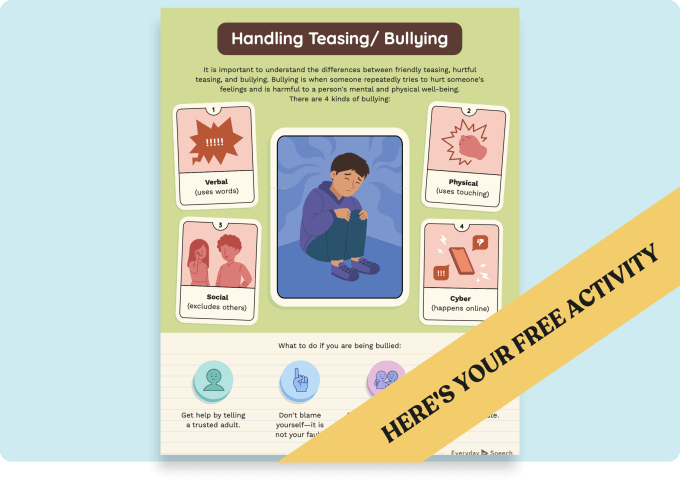Teaching Students to Drive Conversations Forward: Strategies for Special Education Educators
Get free social skills materials
No-prep lessons on self-regulation, emotional recognition, conversation skills, and more.
Sign up hereIntroduction
Being a good friend involves taking turns in conversations and showing interest in what others have to say, even if it’s not a topic that we find particularly engaging. In this blog post, we will discuss the concept of Conversation Drivers and how they can be used to help students in special education settings participate in meaningful conversations. By teaching students to use body language and words effectively, we can help them enhance their social skills and build stronger relationships.
No-Prep Activity: The Conversation Relay
This activity requires no preparation or materials and is designed to help students practice using Conversation Drivers in a fun and engaging way. To begin, have students sit in a circle and explain that they will be participating in a “conversation relay.”
- Choose a student to start the conversation by sharing a topic they are interested in.
- Ask the next student in the circle to respond using a Conversation Driver. They can either use body language (nodding, smiling, maintaining eye contact) or words (making connected comments, asking questions).
- Continue around the circle, with each student using a Conversation Driver to respond to the previous student’s comment or question.
- After everyone has had a turn, ask the students to reflect on the experience and discuss which Conversation Drivers they found most helpful in keeping the conversation going.
This activity encourages students to practice using Conversation Drivers in a supportive environment, helping them become more comfortable with these essential social skills.
Discussion Questions
- Why is it important to show interest in others’ topics, even if we don’t find them personally engaging?
- How can using Conversation Drivers help build stronger relationships with our friends and peers?
- What are some challenges you might face when trying to use Conversation Drivers, and how can you overcome them?
- How can we recognize when we are using Conversation Stoppers instead of Conversation Drivers, and what can we do to change our behavior?
- Can you think of a time when someone used Conversation Drivers with you, and how did it make you feel?
Related Skills
In addition to Conversation Drivers, there are several other social-emotional learning skills that can help students in special education settings build strong relationships and navigate social situations effectively. Some of these related skills include:
- Active Listening: Focusing on what others are saying and responding appropriately.
- Empathy: Understanding and validating others’ feelings and perspectives.
- Conflict Resolution: Addressing disagreements in a constructive and respectful manner.
- Assertiveness: Expressing oneself confidently and respectfully.
Next Steps
If you’re interested in exploring Conversation Drivers and other essential social-emotional learning skills further, we invite you to sign up for free samples of these materials and more at Everyday Speech. By incorporating these strategies into your teaching practice, you can help students in special education settings build the skills they need to foster positive relationships and succeed in social situations.


